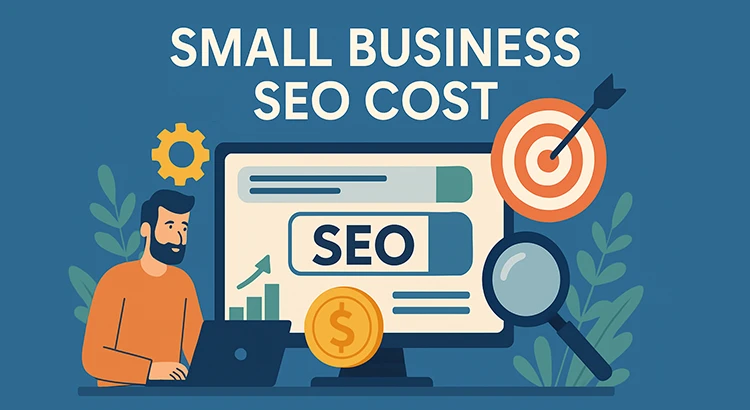Understanding the small business SEO cost can help business owners plan their marketing strategy effectively. Many small business SEO companies offer a variety of services, and knowing what influences their pricing can make a big difference in choosing the right plan.
How Much Does Small Business SEO Cost?
The overall cost for optimizing a website varies depending on the scope and service provider. While some firms offer flexible options, others may have fixed monthly plans. Here’s an overview of what a small-scale organization might expect when investing in this kind of service:
Typical Monthly Price Ranges:
| Service Tier | Monthly Price (USD) | Inclusions |
| Basic Starter Plan | $100 – $250 | Local listings, content suggestions, analytics |
| Mid-Level Growth Package | $300 – $600 | On-page fixes, blog updates, backlink tracking |
| Full-Service Package | $700 – $1,200 | Full audit, competitor research, content edits |
| Custom Campaigns | $1,500+ | National targeting, content strategy, consulting |
Note: The prices listed above are approximate values intended to give a general idea of potential expenses. For an accurate quote tailored to your specific needs and business goals, it’s best to consult directly with professionals who specialize in website optimization.
Factors Influencing the Pricing
Several components contribute to the overall investment for digital optimization. Here are key elements that impact pricing for these services:
1. Scope of Work Required
The number of tasks involved directly affects pricing. Basic plans may include simple updates, while extensive work like content creation, link building, or site audits will raise the overall budget. A wider range of tasks usually means a higher cost.
2. Current Website Condition
If a website is already well-structured with clean code and some optimization in place, the expense may be lower. However, sites with outdated designs or major technical issues typically require more hours to fix, which increases the total investment needed.
3. Competition in the Market
Industries like law, finance, and e-commerce often have many competitors fighting for the same audience. Reaching and maintaining a good position in search results within such sectors usually demands more time, resources, and effort, leading to higher overall pricing.
4. Content Development Needs
Some service providers include blog writing, page updates, or local landing page creation in their plans. If your company requires continuous content support, the added workload will affect the monthly price. High content demand typically raises costs due to research and writing.
5. Geographic Focus
Targeting a specific local area is usually more affordable compared to campaigns aimed at multiple cities, states, or national markets. Expanding the target region means additional keyword research and optimization efforts, which increases both workload and total budget requirements.
6. Level of Service Customization
Tailored solutions based on unique business goals can deliver better results, but they usually cost more. A custom approach often involves deeper research, one-on-one consulting, and flexible strategies that adapt over time, all of which contribute to a higher expense.
7. Experience of the Service Provider
Agencies or consultants with a long track record and proven results may charge more for their services. Their experience often translates to more efficient work and better long-term outcomes, but this expertise usually comes at a higher starting price point.
Conclusion
Setting a clear budget for website improvements is a practical step for any small company looking to grow online. The overall price can vary based on the services you need, how competitive your industry is, and the experience of the provider. With the right plan, even a smaller investment can lead to steady improvements in search traffic and customer reach.


